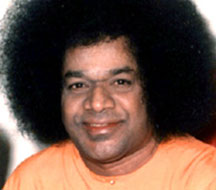
Good people wouldn't get hurt; With analogy of an Goldsmith and gold
Bangalore, Brindavan (Summer Course )
Description
Here is a story of a goldsmith who during the practice of his profession was once melting gold. In this process, he was addressing the gold thus, “Oh gold! you are a very valuable thing and people respect you but now you are in my clutches. I will have the great opportunity of heating you, melting you, beating you and doing all kinds of things that will hurt you. This is now my privilege and pleasure”. In response, the gold tells him that the result of all his effort to cause hurt to the gold is only to further purify the gold, increase its value by removing impurities and make it shine better and more attractively. But in the process, the heat, the smoke, the pain of having to beat hard are all irksome only to the goldsmith. In this way all the trouble goes to the goldsmith and all the improvement goes to the gold. If you take good people, saints, men of great character and men who have steady minds, it does not matter whether you abuse them or hurt them or praise them. The hurt, the abuse and even the praise never reaches them. They are returned to the persons from whom they emanate. You young people are now at the appropriate age when you should make contact with men of great character and good men and choose the path along which you wish to move. I do hope that all of you assembled here will seek such good company and will choose such a path.
Topics
-Analogies
-
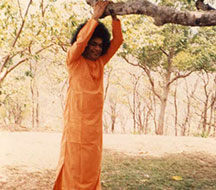
If you have faith, God himself will be a puppet in your hand
00:01:58How simple it is to practise it in your daily life! You don’t need to study any sacred texts. Nor is there a need for you to perform any spiritual practices. People in those days understood the essence of Vedanta in such easy and simple ways. Many small words propound great truths of Vedanta. One can write 300 books, taking three words from Vedanta. How is it possible? There are only 26 letters in the English alphabet, with the help of which any number of books can be written. There are only four strings in the violin, which can produce any number of tunes. Similarly, if you have only faith and love, you can achieve anything. In fact, God Himself will become a puppet in your hand. You will not be in the hands of God, but God will be in your hands when you have love and faith. Jumsai said that, though each person looks different from the other, the same Atma is present in everyone. All are one, be alike to everyone. He said, all are children of God. But according to Me, all are not children of God but are God Himself.
-
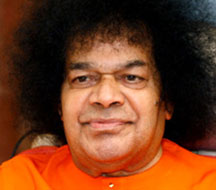
Who are the sinners? Analogy from Mahabharatha
00:04:30If one says, “I have not committed a sin, the other has committed.” then half the share of sin lies with oneself for watching the other commit it. Therefore are many such subtle wisdom capsules embedded in Vedanta. In a full court, Duryodhana was humiliating Draupadi. She prayed to everyone. There were Bhishma, Dronacharya, Krupacharya –all were present but none replied. Krishna later said, “Bhishma, you are a wise person. Dronacharya you are a great teacher; you are not merely a teacher but a guru. You are an acharya. Who is an ‘acharya’? An acharya is the one who leads by example. You say you are an acharya but you too did not open your mouth!! Therefore, the evil effect of the sin committed by Duryodhana is not limited to him alone, but it will affect the elders of the Kuru lineage. Not speaking against the wrongs though fully aware is a sin too. You have been watching the evil doings with your eyes so you too have committed the sin.” He told Bhishma, “You are wise and knowledgeable but you never raised your voice so you too are a sinner.” The person who committed the sin, the person who witnessed it, the one who encourages it and the one who suffers it –all the four are sinners. Therefore the sin lies not only with the person committing it but also with the person who does not object it or correct it, the person who encourages it and the person who witnesses it. Bhishmacharya, Dronacharya and shukraacharya are all sinners. So what was their fate in the end? Bhishma had to lie and suffer on the bed of arrows for fifty six days till his death. He was a man of great wisdom, why did he face such an end? He suffered so because knowing the mistake he did not object or correct it. Dronacharya was a great teacher, acharya. What happened to him at the end? He was the one who taught the usage of arms and archery to Kauravas and Pandavas. When Yudhistra said loudly, “Ashwathama hathaha” and whispered the word “kunjara” Dronacharya, who was very attached to his son, gave up his weapons in the battlefield. The attachment is the primary reason. There are three types of attachments namely- attachment to wealth- dhaneshana, attachment to wife- daareshana, attachment to son –putreshana. These are the important mantras in Vedanta. Vedanta states that man commits many sins due these attachments. This is the main principle in Tarakam. Therefore God manifests to the one who, in all the five mantras that one chants and in all the five mudras, has one-pointed concentration. The divine principle of Brahman is present in everyone.
-
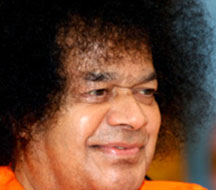
Do not indulge yourself in too much talk: With analogies
00:01:14What is awareness? It is ‘Chith’. What is ‘Chith’? It is total, comprehensive wisdom! Today one loses out on this wisdom due to incessant talk. Therefore the power of vibration and radiation that is innate in one self is rendered useless. One must not use unnecessary words. One’s mind may be steady but other’s mind may waver due to useless talk. Therefore one must put an effort to know oneself as well as others. If one says, “I have not committed a sin, the other has committed.” then half the share of sin lies with oneself for watching the other commit it. Therefore there are many such subtle wisdom capsules embedded in Vedanta.
-
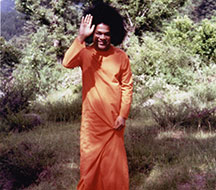
Inner vision helps you to know your true nature: Beautiful analogies from householder's life
00:05:52Inner vision helps you to know your true nature: Beautiful analogies from householder's life Embodiments of love!! Everyone sees physical Swami, but one should not see the physical form but seek inside. Outer vision is useless. Every moment one sees the physical world around but should look within. When one starts looking within then starts the journey inwards one’s true form. Hence one must not look outside but look within. The outside world harbours all useless things. There is the owner of a house. The owner throws away all the useless and waste baskets and other items outside. He throws all the valueless items outside but securely stores away the valuable items under lock and key in Godrej almirah. Servants see only the waste items thrown out but do not know about the valuables stored away inside. Therefore who is the one who seeks outside? Only the labours seek outside. The servants who work for the owner seek outside. The servant sees outside but it is only the owner who knows the items inside. The valuable items- the gold, diamonds, precious stones etc, inside the house is known to the residents of the house. Since everyone is looking at things present outside, everyone is a servant. What valuable things are present inside!!! The Tarakam, Sankhyam, Amanaskamu are like the most valuable diamonds. All these exist within one self but one is unaware of it. What is the reason? One has not become the owner yet. One can see these valuable things once he becomes the owner. God is the owner. When one belongs to God, the owner, one can understand all the valuable aspects. Therefore one must befriend the owner. How to befriend the ‘owner’? Vedantam gives good examples. Swami explains these aspects in a simple manner so that students too can understand it. The owner of the house is on the terrace. A visitor comes to see the owner. But there is a big Alsatian dog at the gate. That dog is likened to ‘Maya’. It will not allow the visitor to enter inside. What should the visitor do to enter the house? If one can overcome and control the ‘Maya’, the dog, then he can enter the house. Alternately, the visitor can call the owner, “Sir! Sir!”, then the owner who is on the terrace will come out and see. He would come down saying, “O! Hello! You have come!!” The dog would not say anything when the owner escorts the visitor inside along with him. The dog will remain silent when the visitor is in the company of the owner. But it will obstruct the path when the visitor tries to get in alone. The all pervading and eternal witness, God, is on a higher plane. He has appointed ‘Maya’ at the entrance. Control over this ‘Maya’ is ‘gnyaanamu’, wisdom. How to have control over ‘Maya’? Whose creation is ‘Maya’? It is the creation of the owner; it is the owner who has put the dog- ‘Maya’. The dog would give way inside when the visitor knows the master very well. The visitor must introduce himself saying that he and the owner are one and the same. This is stated as “Adwaitha darshanam Jnana”, the vision of non-dualism is true wisdom. Alternately, if the visitor calls out, “Rama, Krishna, Govinda”, the owner will come out to have a look. The owner then will come down and take the visitor along with him. Then the ‘Maya’ will not affect the visitor. Therefore in order to see the owner, God, one must follow either the path of Bhakthi, devotion or the path of Jnana, wisdom.
-
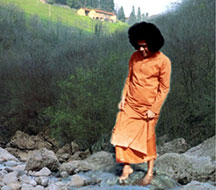
Analogy of a mike to explain matter and energy
00:02:00There is a mike here. As Swami speaks in the mike, everyone is able to hear Him. There is the mike and Swami is speaking, but without current none can hear Him. This mike is the ‘matter’; current is the ‘energy’; and the combination of both makes Swami’s voice spread everywhere. Hence the Brahma and Maya together attain a mighty cosmic form. The cosmic form is ever expansive. It will expand to the extent possible. Sakala shastra puraana sangrahaveththa ayi, Vedanta vedyudau vibhujudaina, Rakthiayi paaraga ramya harmyambula, Ramiyinchu raja chandramudu naina, Ranaranga mandu paraabhutaripudauchu Velugondu jagadeka veerudaina, Saati raaru bhakthulaku yenaatikaina, Needu premaye lekane raadu mukti!! He may be a scholar in Vedas, epics and sacred texts He may be a king living in a big palace, with comfort and beauty, He may be one of valour and courage fighting well in the battlefield, Any day they do not equal a devotee!! And without love, liberation is hard to get!! One might well-versed in all the Vedas and Vedanta but without love one cannot attain liberation.
-
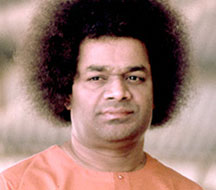
Students should not give scope for bad thoughts: Analogies
00:02:00Students must develop good thoughts through their pious character and good qualities. One must never give room to bad thoughts because with little opportunity bad thoughts grow on quickly. Hence, one must never entertain any bad thought. When bad thoughts come one must brush them aside firmly. How must it be done? One must close the doors of one heart to bad thoughts. A house is built with windows and doors. What is the purpose of doors? A door allows people of the house to move in and out. It facilitates the well-wishers and friends to come and go. Just because there are doors, will one let the way side dogs, pigs, donkeys and the like to enter the house??! No. Likewise one’s body too has ten doors. One should not permit all the rotten things outside to enter. They must be driven out. One must achieve this goal with all the courage. Man must get rid of the bad qualities when they are at a distance and not wait till they enter in. By keeping the bad thoughts at bay, Ratnakara became the great Sage Valmiki. When a cruel person could transform into a noble and great sage, then isn’t it a matter of shame for man who being born as human, being educated, having good qualities is not able to attain divinity? Humanity, that is the true essence of Vignyana, Wisdom, Sugnyana, right knowledge, Pragnyana, Spirituality must transform into Divinity.
-
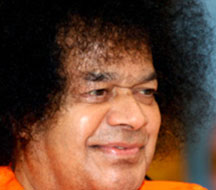
The divine source is responsible for all our senses to function: Analogies
00:00:54Vision is not in one’s eyes, listening is not present in one’s ears; speech is not present in the tongue—there is a divine power behind all. A person dies; the dead body has eyes, but is he able to see through them? The dead person has ears too; is he able to listen with them? What is the reason? All the sensory organs are present in the dead body but the vital vibration is absent, the divine power is absent. Therefore he is not able to see even though he has eyes; cannot hear in spite of having ears. The reason is that the nature of the mind has become impure and has vanished totally.
-
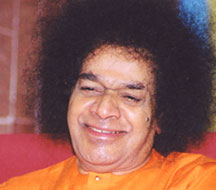
Mind is pure and blemishless: With analogies
00:02:48Students!! There are many things that are not known to the students and many things that need to be learned. Students need to understand the difference between the intellect and intelligence. Likewise there is a difference between mind and the thoughts. The mind is very pure like a white cloth. It becomes impure and dirty because of the bad thoughts. The whiteness is its natural quality. The white cloth becomes soiled and dirty with usage and is put to the washer man for cleaning. The washer man brings in the washed and clean cloth. People say that the washer man has made the cloth white and bright. The washer man does not have the ability to whiten the cloth. The whiteness is the very nature and quality of the white cloth. The washer man had just removed the dirt. Likewise the mind, too, is pure and sacred like the white. It gets impure due to the exposure to the worldly and physical attachments. The mind loses its dirt when it is washed on the stone called ‘contemplation of the Lord’. That is ‘Shraddha’, steadfastness. One must inculcate such steadfastness. With sincerity and faith there is nothing that man cannot achieve. One can achieve anything with faith and sincerity- can go to the moon, reach the stars and even reach the sun! What is the Sun that one can reach? It is not the Sun that produces Hydrogen and who helps the entire world! “Chandrama manasojathaha, chaksho sooryo ajayatha” Who is the Sun? One’s eye sight is the Sun. One can certainly reach the sun- the proper and pure vision. People think that God has taken a disc for a weapon. This weapon is called as the ‘Sudarshanam’- which means ‘good seeing’.
-
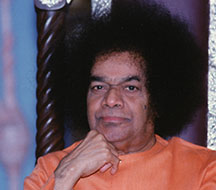
Understand the difference between intellect and intelligence: With analogies
00:05:17Students should understand the difference between intellect and intelligence. One can earn “O” grades (high grades), can debate skilfully, can give good speeches with the help of intelligence but all these are worldly, physical education and are all outward paths. But it is the intellect that leads one on the inward path. One needs to understand the proximity of intellect clearly. The body is the base. Senses are above the body. Mind is over the senses. Intellect is above the mind. Atma is above the intellect. Therefore intellect is very close to the atma. Therefore intellect shines forth because of the Atma and is the very reflection of atma. Hence it is a blunder to compare such sacred intellect with the worldly intelligence. Intelligence is bound by senses and is not beyond them. It is composed by senses. But intellect is beyond senses. Hence there is no relationship between intellect and intelligence. Intelligence pertains to the physical body. One cannot understand the unifying principle of the atma as long as one identifies with the body. A wealthy person built a big mansion. He made a bedroom, a bathroom adjacent to it, a dining hall, a drawing room, and a kitchen behind, a store room adjacent to the kitchen— made so many rooms in the mansion. How are the rooms different from each other? How is the dining room different from a drawing room? How is the bathroom different from a bedroom? What is the difference between the kitchen and the store room? Different rooms are formed only because of the walls. There is a wall between the dining hall and the drawing room. The two rooms become one when the wall is removed. Likewise the large mansion would become a one big hall if all the walls were removed. This symbolises the blissful state of the all pervading Oneness. It is because of the different vestures that man puts on, the differences arise. There is the head of the family. Son calls him ‘father’; wife calls him ‘my dear husband’. He is addressed as ‘grandfather’ by his grandson; his daughter-in-law addresses him as ‘father-in-law’. So, many have many relationships but the head of the family is one. Likewise, these relationships apply to the body and vesture that is put on but not to the spirit. Therefore all the differences vanish once when one considers the unifying principle of the atma- that is- it is the one and the same atma that exists in all. Hence one need not take up special practises to get rid of body feeling. The body is like a wall. It is negative; it is the positive, in the form of vibration, which runs the body. There is a clock; the hands of the clock move, once the key is tightly wound. If the key is not wound, the hands of the clock stand still and one cannot tell the time in terms of hours, minutes and seconds. Similarly for the clock called ‘the body’ to tick, the key of ‘life’ is necessary and based on the key called ‘life’ the various parts of the body function.
-
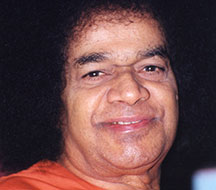
Difference between Intellect and Intelligence: Analogy of Vikramaditya
00:05:51Embodiments of Love!! In this world, “intellect” is considered as synonymous with the word “intelligence”. But this is not the correct meaning. The word “intellect” conveys a meaning that is just the opposite of the word “intelligence”. King Vikramaditya, with an intention to know the difference between intellect and intelligence, conducted a conference where in many poets, wise men, scholars and intellectuals participated. Emperor Vikramaditya beseeched the members of the gathering, “O learned and wise among men! Please let me know the difference between the intellect and intelligence and make me happy. Please explain about the nobler and greater among the two.” All the scholars assembled unanimously declared that intellect is superior to intelligence. They also proved that the intellect had the qualities of character, fraternity etc which were lacking in intelligence. Vikramaditya was very surprised by the verdict of the scholars for he thought that there was no difference between the intelligence and intellect. Vikramaditya prayed to the scholars again, “O wise among men, please explain the difference between intelligence and intellect.” The pundits explained, “Intellect has five aspects and is very valuable. Intelligence stands nowhere near it. Out of the five aspects the first is “shraddha” steadfastness, the second “Rutham”, the third “Sathyam” truth, the fourth “Yoga” and the fifth one is “Mahattara Shakthi” mighty power. “Buddhi” or the intellect has these five aspects.” It is the “Medha Shakthi”, the intelligence, which develops the worldly wise ways pertaining to the physical world. An intelligent person is plagued with doubts without a moment of faith in anything aspect. Intelligent people are also highly egoistic. Where there is ego there is a decline in the atmic power and also in the power of the intellect. Therefore intelligence is not a qualification of an educated person. Unfortunately today an intelligent person is regarded with high esteem and is also respected for his intelligence. But in the ancient days, nobody kept the company of the intelligent people; they only respected the person with intellect, “Buddhi”.
-
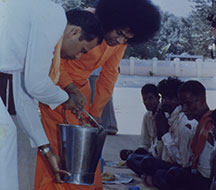
Difference between an Optimist and a pessimist
00:05:29“Korika teerina vela nanu goppaga pogidedaroyi! Korika teeraka pothe uraka tegedadaroyi” ‘People extol when their desires are fulfilled but when their desires are not fulfilled they abuse me!!’ One does not know one’s desires fully then how can one say that the desires are unfulfilled? Due to ignorance man desires low and mean desires and becomes dissatisfied when those desires are not realised. One does not know the nobler and greater things that the Lord has in store for one. What does one know about the valuable and precious things contained in the Lord’s treasury?! But man seeks cheap and low things without recognising the valuable and precious things in His treasury. It is like desiring the coal lumps leaving the diamonds! And man gets disappointed and dissatisfied at not getting the coal lumps!! The Lord is ready to give the gems but man must have patience till God gives. But man lacks the patience. People don’t mind standing in long queues for hours to board a bus or to see a movie but cannot wait for five minutes for God. The moment the desires are not fulfilled he is subject to restlessness. This is the mean mind, low desires. Therefore one should not think that fulfilment of desires as something great and non fulfilment of desires as something low. One must firmly believe that, whatever happens is for one’s betterment, “It is good for me.” and live with the anticipation that though God might have failed to fulfill some desires, He may yet have pleasant surprises in store. Hope and disappointment both are beneficial to man. Man must have steady mind under both the conditions. An optimist invents an aeroplane; tries to move not only on earth but also in air. An optimist invents an aeroplane in hope but a pessimist invents a parachute out of fear! The inventions of both the pessimist and the optimist are useful; hence hope and desperation both are beneficial to man. An optimist feels hopeful and happy seeing the half filled tumbler. He is satisfied that the tumbler is at least half filled with water. A pessimist sees the tumbler as half empty and becomes desolate. Both the versions are true facts; the view point of both the persons is true. It is true when the pessimist says that the tumbler is half empty and so is the optimist when he says that the tumbler is half full. Both are true. Hence, “Satyam nasthi paro dharmaha!” there is no other righteousness than the truth and one must make an effort to recognise that truth. But man proceeds in only one direction and with a one sided perspective hence suffers hope and despair. An optimist sees only the rose flower but a pessimist sees the thorns below the flower. There is no rose without the thorn, so both exist. Plucking the rose without touching the thorn is an example of one’s ability. The optimist looks at the sky and enjoys the soothing moon light while a pessimist looks at the earth and becomes restless seeing the darkness around. Therefore, “Look up! Low aim is crime!” one should not look downwards but must develop noble and high thoughts. Man faces despair and disappointment in every aspect due the lack of noble thoughts.
-
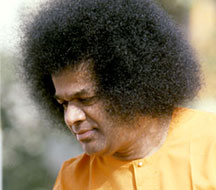
Whatever happens is for my own good: Beautiful Analogies
00:05:29“Korika teerina vela nanu goppaga pogidedaroyi! Korika teeraka pothe uraka tegedadaroyi” ‘People extol me when their desires are fulfilled but when their desires are not fulfilled they abuse me!!’ One does not know one’s desires fully then how can one say that the desires are unfulfilled? Due to ignorance man desires low and mean desires and becomes dissatisfied when those desires are not realised. One does not know the nobler and greater things that the Lord has in store for one. What does one know about the valuable and precious things contained in the Lord’s treasury?! But man seeks cheap and low things without recognising the valuable and precious things in His treasury. It is like desiring the coal lumps leaving the diamonds! And man gets disappointed and dissatisfied at not getting the coal lumps!! The Lord is ready to give the gems but man must have patience till God gives. But man lacks the patience. People don’t mind standing in long queues for hours to board a bus or to see a movie but cannot wait for five minutes for God. The moment the desires are not fulfilled he is subject to restlessness. This is the mean mind, low desires. Therefore one should not think that fulfilment of desires as something great and non fulfilment of desires as something low. One must firmly believe that, whatever happens is for one’s betterment, “It is good for me.” and live with anticipation that though God might have failed to fulfil some desires, He may yet have pleasant surprises in store. Hope and disappointment both are beneficial to man. Man must have steady mind under both the conditions. An optimist invents an aeroplane; tries to move not only on earth but also in air. An optimist invents an aeroplane in hope but a pessimist invents a parachute out of fear! The inventions of both the pessimist and the optimist are useful; hence hope and desperation both are beneficial to man. An optimist feels hopeful and happy seeing the half filled tumbler. He is satisfied that the tumbler is atleast half filled with water. A pessimist sees the tumbler as half empty and becomes desolate. Both the versions are true facts; the view point of both the persons is true. It is true when the pessimist says that the tumbler is half empty and so is the optimist when he says that the tumbler is half full. Both are true. Hence, “satyam naasthi paro dharmaha!” there is no other righteousness than the truth and one must make an effort to recognise that truth. But man proceeds in only one direction and with a one sided perspective hence suffers hope and despair. An optimist sees only the rose flower but a pessimist sees the thorns below the flower. There is no rose without the thorn, so both exist. Plucking the rose without touching the thorn is an example of one’s ability. The optimist looks at the sky and enjoys the soothing moon light while a pessimist looks at the earth and becomes restless seeing the darkness around. Therefore, “Look up! Low aim is crime!” one should not look downwards but must develop noble and high thoughts. Man faces despair and disappointment in every aspect due the lack of noble thoughts.
-
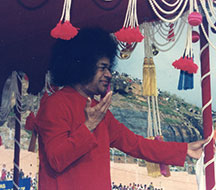
Every action has a reaction: With beautiful analogies
00:03:41Every action has a consequence. There cannot be an action without reaction. An action however small will definitely have a result. One is sewing clothes with a needle and gets pricked by the needle. The needle might be small, but as the consequence of its pricking, blood oozes out. That very second the blood oozes out. It takes two hours for the food eaten by a person to get digested. Here it takes hours to get the reaction. Some seeds have been sown in the soil. It takes a week for the seeds to sprout. Here the reaction time is a week. Likewise actions take few minutes or few hours or few weeks or even few births to result in reaction. Therefore one should not wait for lives and years for the result to take place. Things must happen as and when they should. One is not troubled by such actions which yield the results immediately. One is bound to experience the consequences of his actions irrespective of who he is. “Is it not possible to escape the consequences of actions?” one may wonder. It is possible to get rid of the consequences of one’s actions. One is freed of all suffering when one’s heart becomes the abode of sacred love. One only improves based on one’s temperament. All results are based on thoughts. As is the thought so is the result. As is the action so is the body. As is the body so is the result. Therefore in order to maintain a strong kaya, body one must take to good deeds. Good deeds yield positive results. Pretending to be good natured while fostering evil intensions inside is useless. The seed sown within will sprout and germinate outward as plant but not the seed that lies on the surface. Pretence will not yield positive results. If the thoughts, which penetrate deep within, are sacred, then they give rise to sacred results.
-
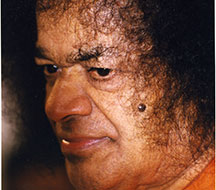
Do not preach, act: Story of Deer's meeting
00:03:00Can any number of dogs equal a lion?? No! Never!! The modern day students persevere with false chivalry. This is the weakness of the modern age. Once upon a time, a conference was held by all the deer in the forest. In the conference the president of deer took a vow. He said, “My dear deer!! In what way are we inferior to dogs? We run faster than dogs. We are in no way lesser in strength than the dogs. Dogs cannot jump high like us. They cannot run better than us. We eat satvik food and dogs eat tamasik food. Dogs are far below us in their eating habits. Even God loves deer. We have pious heart. Bodily we have so much more power and strength. Our legs are small and short but when we kick with those legs we can oust the intestines of enemies.Why should we, who have such strength and power, fear dogs?” The deer unanimously passed a resolution that from then on they would not fear dogs. All the deer were ready to follow the resolution. A dog that was deep in the jungle barked loudly hearing the noise made by the deer. Hearing the dog bark, there was not even one deer left at the conference; all ran away. Of what use are such resolutions? All such resolutions evaporate when it’s time to act. Such is the trend of present times. Therefore one must not talk excessively. Man is ready for food but runs away at the prospect of work!! No, it should be the other way- ready to work and run away at the prospect of food!! One must be ever ready to do action and be action oriented.
-
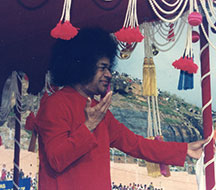
Everything is Brahman: With analogies
00:07:26Embodiments of Brahman!! When a seed is sowed, it germinates into a plant and grows into a gigantic tree. One sees the branches, flowers, leaves and fruits of the tree as separate parts and makes use of them in different ways. However, all are the different manifestations of soil. The leaves, the branches, the stem, the flowers and the fruits are all modifications of the same soil. A person who mistakes a rope for a snake shouts in panic upon seeing it but is pacified when another points out the truth that the thing is a rope and not a snake. The fear of the person who mistook a rope for a snake is dispelled upon realising this truth. It was rope in the beginning, it was still a rope when it was mistaken for a snake and it remained a rope when the fear was dispelled and the truth was realised. This rope can be likened to brahma. The ignorant mistakes it to be the serpent by differentiating the individual and the divine. Just as the person pointed the truth that the thing was indeed a rope and not a snake likewise the wise propagate the truth that it is not creation but Brahman. All that is seen in this world is a manifestation of the Brahman. Some people consider Brahman exemplary and themselves very ordinary. They describe Him as omnipotent, omniscient and omnipresent. One is verily the divinity that is all powerful and all pervading. One is deluded by the feeling of belonging to the world and considers oneself as mere human aspiring to see the Divinity as a separate entity elsewhere. “Pasyanapicha na pashyathi moodho!” All that one sees and experiences is Brahman, and yet one is in search of the Brahman, how delusional!! No man would readily believe this truth. There is the ocean. There are numerous waves that originate in the ocean. Foam is collected on the surface due to the waves. The waves, the foam and the ocean are separate entities from the point of view of man. No, the three entities are one and the same. The attributes of the ocean namely wetness, coolness are also present in all the three –the ocean, the waves and the foam. The waves taste very much like the ocean. Hence one must ponder upon the intimate relationship between the ocean and the waves. From the fathomless depths of the mighty ocean of “Sath, Chith, Ananda” originate the waves of the living beings. When God is in the form of “Sathyam, gyanam, anantham, brahma”, truth, infinite wisdom, Brahman, man is in the form of “Sath, Chith, Ananda”, existence, awareness and bliss.
-
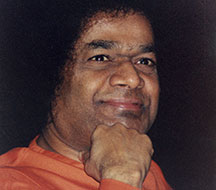
Service is done to redeem yourself: With analogies
00:03:27The service rendered by a person ensures a bright future when that service is devoid of ego and is done in gratefulness as an opportunity given by God. Whatever one does for others, it must be done with a feeling that one is doing it for oneself. In truth the service rendered to others is essentially done for one’s good and not for others. A small example: A friend is warmly welcomed, taken to the drawing room and offered a cup of coffee. This good act gets imprinted in his heart and he remembers the warm welcome received and reciprocates it. Therefore the service that one does today will return in future. If one looks after a friend who is hospitalised with none to look after him, he will reciprocate the help when one is in need of it. Hence the service rendered to others is in fact a reservoir of help for one’s future needs. One must not consider the service as being done to others. Therefore, when one does good or bad deeds as being done to oneself, one will never do bad deeds.
-
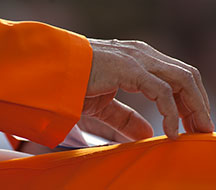
No act of service is low: Analogies from Lord Krishna life
00:06:32When people think of service, they seem to equate it with menial work, usually done by a servant. This kind of association of idea of service with something lowly, is not correct. In this context of ideas regarding service, people should realise that God Himself, in order to serve the world takes the form of human, to re-establish dharma and put back humanity in its high place. The citizens of Bharath are familiar with this concept of an Avatar—when God takes birth in human form. The omnipresent, omnipotent Lord, in Krishna avatar, served Arjuna as a charioteer. Not only this, He used to take the tired and wounded horses to the river and wash and tend to their wounds at the end of the day after doing his duty as a charioteer. In that manner he was prepared to work even as a cleaner. Vyasa, who happened to visit the Lord at that time, shed tears of ecstasy thinking about the good fortune of the horses that had the Lord of the Cosmos tending to them when great sages like Sanathkumara, and Sanaka await such opportunity. When the Rajasuya Yaga (sacrifice) was being performed, Krishna approached Dharmaja and asked, “Dharmaja, allot me some form of seva in this big sacrifice.” Dharmaja turned to Krishna and implored, “Swamy, there is no work appropriate to you. If you can indicate the type work suitable to you I will surely allot it.” Krishna went closer to Dharmaja, patted him on the back and said, “O brother-in-law, don’t you know, I have a degree and qualification of “MA”! I would like to do work appropriate to my qualification.” Dharmaraja could not make anything out of this for in those days there were no colleges as today and no degrees. So he asked Krishna, “Swami, can you tell me the significance of your special qualification so that I can find suitable work for you.” Then Krishna said, “‘M’ stands for the unclean leaves with leftover food and “A” stands for removing the leaves and cleaning them. My degree “MA” means cleaning the leaves that are eaten in. The leaves become unclean after being eaten from and cause a feeling of disgust when left lying in the place creating a sense of discouragement and dislike in the minds of the on lookers. Hence I want to take up this work so that I can give pleasure and good feeling to people around.”
-
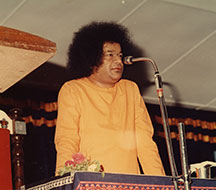
What is form and formless: Analogy
00:02:21Therefore all the worldly actions must be based on spiritual principles. There are two aspects, ‘Saguna’, one with attributes and ‘Nirguna’ one without attributes; ‘Sakara’, one with form and ‘Nirakara’ the formless. What is ‘Sakara’ and ‘Nirakara’? Water does not have any form. It has only the name but no form. Water when solidifies into ice then it acquires a form. Ice stands for ‘Sakara’, the form. Every drop of water in ice is symbol of ‘Nirakara’ the formless. Hence in every form there exists the formless aspect. Some prefer the form, ‘Sakara’ over the formless, ‘Nirakara’ and vice versa. It all amounts to one’s foolishness and ignorance. The form and the formless are one and the same. Without the formless water drops, how can the form of ice exist? The Vedanta explains this aspect clearly, but unfortunately the many spiritual teachers of the present day propagate it through stories via television, radio and in public meetings thereby dragging it to mere worldly level. They do not explain clearly about what truth is and what is justice. All of that amounts to impractical and bookish knowledge. People are turning their minds into books and vice versa.
-
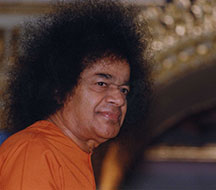
Money doesn't confer happiness and peace: Beautiful Analogy
00:02:53Money is necessary to lead life and there nothing wrong in man working for it. But one should not be greedy for money. Some aspire to become the Tata, Birla, and Kirloskar. Swami sometimes tells them that they can become ‘tata’ (Telugu for grandfather) if he gets his son married!! Do the Tata's or Birla's or the Kirloskar's have an iota of peace? They might be wealthy but lack mental peace. Money might get the physical comforts and luxuries but it cannot give peace to the mind. With money one might get Dunlop mattresses, sofa sets and a/c room for one’s comfort. There is something in the world. In spite of a convenient bed, soft pillows, a working ceiling fan and a functioning air conditioner, man is unable to sleep. What is the use of all the comforts? What is the use of amassing all the conveniences? One arranges for all the above comforts for sleep. When one cannot sleep what is the use of the air conditioner, the ceiling fan, the Dunlop bed and pillow? When one cannot sleep all these things are useless. Similarly, the body, the mind, and the intellect are given for ‘Atma Shanti’, inner peace. Without peace, the mind, the intellect, the inner cause and the body are all useless. Therefore man must act with the realisation that the body, mind, intellect and the inner cause are provided to seek inner peace. Body is not meant for external pleasures or the worldly happiness. The sense organs are not provided to merely watch the outer scenario. It is only for attaining the inner peace and the blissful state of the spirit that these utilities- like the fan, a/c and the bed in the above example- are provided to man. Today man has everything material but does not have peace and bliss.
-
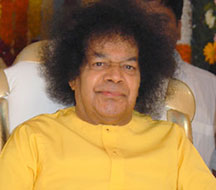
How to control your mind; Analogy of a monkey
00:04:00So instead of undertaking this kind of meditation with a wavering mind, it is better to undertake other types of work. One need not get discouraged on this. The mind has become fickle as we have been feeding it with the worldly tendencies but when it is put into practice which take it away from the worldly tendencies it will become stable. How is this to be done? When we give a work which keeps the mind ever busy, then the mind doesn’t trouble us. It is the nature of the monkey to go up and down and people who catch monkeys know it well. If it is kept at one place it does all monkey tricks! So the people who catch them, take them from house to house and make them climb up and down a pole; this way he also earns alms for himself. Likewise the mind is also like a mad monkey! So monkey must be engaged in an absorbing work to keep it from its fickleness. This monkey will not be under our control if we sit for meditation right away! Hence, first and foremost we should sit and give the monkey mind the duty of a watchman. The monkey mind so entrusted, will watch the breath going in- “So” and the breath coming out- “ham” and is kept busy. After five minutes of this exercise the mind calms down. Then you place a picture which dear to you in front of you.
-
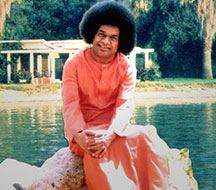
Youth should develop human values and be in good company; With an analogy
00:05:45You should acquire the qualities of truth, prema and forbearance, as also the quality of sacrifice. This period of your life is like the morning time of the day. If you, as you commence your life, turn your mind towards good and towards God, you will be starting your life in a manner where bad qualities do not haunt you, ego does not haunt you, jealousy and other undesirable qualities do not haunt you. There is a small example for this. In the morning time, the sun rises. If at that time you face the sun and look at it, you will notice that you have a long shadow but it is behind you. If, on the other hand, you do not direct your sight towards the sun but turn towards your shadow, you will notice that your own shadow, a long one at that, is leading you and it will appear as if this long shadow is showing you the path. In this example, you are the Jiva Tattwa and your shadow is the Maya (illusion). If it is your desire to overcome Maya and leave it behind you, however fast you may walk, you will never get rid of Maya if it is in front of you. On the other hand, you turn your sight towards the sun, you can overcome Maya even as the shadow is behind you. In the same manner, your mind, thoughts, organs and the body constitute the Maya or the shadow. If you want to get away from them, you will have to turn your vision inwards and towards your Atma. When you do this, you will be able to shake off the Maya. Therefore, you should make an attempt to join the Satsang and derive all the benefits that accrue from joining good company. Good company leads you to detachment and by detachment you will achieve self-realization. Shankara has given many verses and each verse is to be regarded as a shining lamp of knowledge. You should put the contents thereof into practice and rectify your life.
-
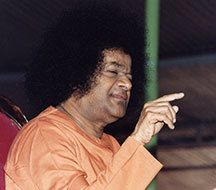
Develop good qualities and participate in Satsang; With analogies
00:06:22We fill a mud pot with water up to its brim. We keep this mud pot very carefully in a place to which even an ant cannot have access. The next day, we find that the surface level of water has been reduced by an inch or two. The reason is that the external environment around this pot is heating it to some extent and a small quality of water oozes out. If the same pot is filled to the brim and kept in a place where it is surrounded by water, we will find that the surface level of water is not reduced at all. As in this analogy, while you are staying for one month in this summer course, you will be filling your heart to the brim with the essence of spiritual learning. When you go back to your places, because the external environment is not the same as what exists here, there is a possibility of the level of spiritual learning in the vessel of your heart becoming lower and lower by oozing out slowly. So you must make an attempt to join sathsanga when you go back, and you must see that the external environment is as good as the internal feeling. Then, the good in your heart does not ooze out. Sometimes it may so happen that you will find yourself in a different company and some among them may be bad. They may even abuse you and treat you in a bad manner. In such cases, you should make an attempt to communicate the good spiritual essence in your heart to them as well. When a sharp axe is used to cut a sandalwood tree, the sandalwood tree does not feel hurt by the axe nor does it get angry with it. On the contrary, the sandalwood tree hands its fragrance to the axe. The sandalwood is such that even when it is cut to pieces, it gives fragrance. Even when it is rubbed against another stone, it gives fragrance. This is the quality of good people
-

Develop goodness both qualitatively and quantitatively; With analogies
00:06:21It is only when we are able to increase the good in us in a qualitative as well as a quantitative sense, that we will be able to change, to some extent, bad persons with bad qualities. There is a small example for this. If you take a cup of water and try to sell it for half a rupee, no one will purchase it. If in ten cups of milk, you mix this one cup of water, then they will readily give you the price for eleven cups of milk. This single cup of water has acquired that value only because it is in the company of milk which is good both in a qualitative and in a quantitative sense. On the contrary, if one cup of milk is mixed with one cup of water, there will be no value for the water, because there is no quantity in such a company. In this case, even the cup of milk which has joined the cup of water loses its value. Thus, when you have one cup of milk and one cup of water which is a mixture in equal proportions, the milk has lost its value. You can understand what will happen if ten cups of water are mixed with one cup of milk. Everything good that the milk had will be completely lost. In the same manner, if inside our heart and outside our body, we create an environment which is good in ideas and good in actions, the strength and faith in our heart will never diminish, waver or change in any manner. For illustrating this, Ramakrishna Paramahamsa gave a striking example. An incense stick, when lighted has fire in it. If some one lights a cigarette, there is fire in it. If a forest is burning, there is fire in it. If a cooking stove is working, there is fire in it. These are all fires of different strengths. If you take a bundle of dry sticks and put it near the incense stick or the cigarette, the dry sticks may not catch fire. Not only will they not catch fire, they will even put out the fire in the incense stick or the cigarette. On the other hand, even if you take a bundle of raw and green plantain trees to the forest fire, they will not succeed in putting out the forest fire but will themselves become part of the fire. The reason for this is that the forest fire is rich in quality and in quantity. It is therefore able to burn everything that comes into contact with it. The fire on the incense stick and on the cigarette has neither the quality nor the quantity and therefore it itself is extinguished. So it is, that if the good qualities in yourself are feeble, they will be extinguished under the pressure of bad company. If they are strong, they will extinguish everything bad that comes into contact with them. There is another example for this. We fill a mud pot with water up to its brim. We keep this mud pot very carefully in a place to which even an ant cannot have access. The next day, we find that the surface level of water has been reduced by an inch or two. The reason is that the external environment around this pot is heating
-
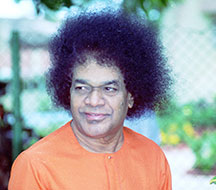
Swami on the nature of good and bad people; With analogies
00:07:42If you can understand the strength and the power of good company and use it in the best manner possible, there is every chance of your doing great things. All good people are such that their thoughts are very attractive. Their actions are soft and their ideas are good. The good people can be recognised by their gentle thought, word and deed. Here is a small example. If a piece of black charcoal is kept in the proximity of a bright red fire the area along which this black charcoal is in contact with the bright fire will also begin to glow. In this analogy, the black charcoal is your ignorance. The bright red fire is the good company. By the two coming together, only the portion of your ignorance that is exposed to the effects of good company will be dispelled. But, if you employ sadhana or practice as a fan to increase the area of contact, then the entire region of ignorance will become bright. It is, thus, not enough if you are merely in the company of good people. You should also develop the sadhana of prema or love, and become dear to the good people. It is necessary to be near and dear to the good people. The nature of the bad people is such that they enjoy and take pleasure in seeing the difficulties and troubles which come across the path of the good people. Looking at good people who are doing good things and getting some fame for the good actions which they are doing, bad people become jealous and spread bad stories about the good people and try to pull them down. These people will be making an effort to see only the bad qualities in others with a thousand eyes. The company of such bad people draws us also into bad ways; and therefore, Sankara taught that one should try and keep at a distance from the company of such people. It may be argued that if we keep ourselves at great distance from such bad people and exercise no influence on them, it is possible that these bad people will cause harm to the society and to the country. It may be suggested that under such circumstance, we should go near such people, give them good advice and change their ways. We should assess and find out how far away we should keep from bad people and under what circumstances. If there is strong faith in our own capacities and in our own good, and provided we have the strength to maintain the good that is in us, then there is a point in our going near bad people and trying to change them into our ways. On the contrary, if there is no strength in our own good qualities, there is no point in trying to change the bad people because you may lose even the feeble strength that you happen to have. It is only when we are able to increase the good in us in a qualitative as well as a quantitative sense, that we will be able to change, to some extent, bad persons with bad qualities.
-
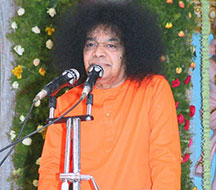
Benefits of being in a good company; With analogies
00:08:10You may ask what benefit we may get out of such good company. Man’s good as well as bad features receive their final shape when he mixes with other members of the society. In this context, we can take the example of the dust that settles on the surface of the earth. Although such dust does not have wings and cannot fly away by itself, by acquiring the good company of wind, it can get off the earth. The same dust settles down and cannot move upwards if it acquires association with water. Iron, which is hard, black and dull becomes soft, red and shining when it makes friendship with fire. The same iron, acquires a lot of rust and loses all its strength when it makes friendship with dirt and moisture. All these modifications are coming because of association with others in the environment. It is generally not possible for anything to change or transform by itself without the help of external associations. Even a newly born baby learns to walk, talk, run, read and write only with the help of its mother and the love and affection the latter shows. Without the love and affection from the mother, the baby will grow like an animal and will not be able to talk, walk or do things which other human beings can do and are trained to do. Animals which are born in the forest, grow and move about in the forest and have certain features which are special to them. If the same animals are given appropriate training by a circus manager, we can make them do things which other animals cannot do. Even birds are able to utter good words in an understandable and clear manner if we give them good training and keep them in good company. Thus, the kind of sacred life which you wish to lead and the aspirations which you have in your mind about the type of life which you want to live can be achieved if you are in the company of good people. You have to make friendship with good people and follow their example in your daily routine. This is the appropriate age for you to lead such a life and put yourself in the company of elders. During this age, you will be able to develop good ideas and good conduct and you should make a firm determination to do so. At this important stage of your life, you should dedicate yourself to the service of your country and to the service of your parents. On the contrary, if you spend your time in bad company and wander about the streets like stray dogs, whistling like foxes, you will only be wasting your life. Time wasted is life wasted.
-
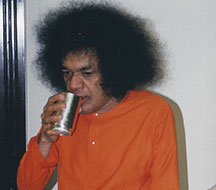
Man's ignorance towards death; With analogy
00:04:16These feelings are all wrong. Even though death is staring in the face of an individual every moment, we see him celebrating his birth anniversary, unmindful of the fact that he may meet his death any moment. How are we to interpret the minds and attitudes of such people who do not seem to bother about what happens to them the next moment? The frog that has been swallowed by the snake and is shortly to die will itself try to swallow some worms, not realising that death is ready at hand to snatch it. The snake in its turn does not know when it will be swallowed by the peacock. Unmindful of the fact that the peacock can swallow it any moment, the snake feels proud that it is swallowing the frog. In the same context, the peacock does not know what is going to happen to its own life, the next moment. A hunter may be chasing it and the peacock does not know what the hunter will do, but in its turn is very proud that it is swallowing a snake. In this world, one person is swallowing another and the other person is swallowing yet another. Each person thinks that he is swallowing another and does not know that yet another person is ready to swallow him. Further, man thinks that he is swallowing time, while time is there to swallow man at any moment. This is great ignorance on man’s part. Because you are so much entangled with the aspects of the body, mind and intellect, you feel that you are subordinate to time and that time will swallow you. However, if you can develop an aspect by which you can feel above the aspects of body, mind and intellect, it will be possible for you to get control over death and regard it as part and parcel of the evolution of the immortal element in you.
-
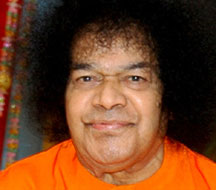
Swami on Pancha Koshas with analogies
00:08:29Without food, the body cannot live. If there is no body, we cannot really picture the mind. If there is no mind, we cannot recognise life in the body. The aspects of knowledge and bliss are dependent upon the aspects of food, of mind and of life. Therefore, we are after these three aspects. It is true that these aspects are transient and not permanent and that they have no value. But since the aspects of knowledge and bliss are dependant on these, we attach some importance to them. To be able to experience the aspects of knowledge and bliss, we should protect our body, mind and life. There is a small example for this. If in our house, we have some valuable jewels and gems to be protected, we put them in a comparatively cheap iron safe. This steel almirah or an iron safe has no value compared to the jewels, but we are putting valuable jewels in it. Our body is like the valueless iron safe. In this valueless body, God has kept for protection, very valuable things like knowledge and bliss. But sometimes, according to our convenience, we think that God has not done the right thing in keeping such valuable things in a valueless and impermanent body. God is the embodiment of intelligence and wisdom and looks at things in a total and complete manner. In His creation, there cannot be anything which has no specific purpose. He creates everything with a specific purpose. If we keep the valuable jewels in a valuable gold box, nobody will wait till he has a look at the jewels inside. They will take away the box itself as soon as they see it. It is natural to protect valuable things in a valueless box which will not attract attention. Therefore, in order that we may reach the realm of knowledge, bliss and happiness it becomes necessary to look after the well-being of the outer casing namely, body, mind and life. There is another small matter to which we have to pay some attention. When we keep valuable things in a box, we have to lock the box and keep the key safely with us. If you do not have the key, it will not be possible for you to take out of this box the knowledge and bliss when you really need them. This key has been referred to by Sankara as the key of bhakthi or devotion. When you use the key of devotion and turn it on the side of detachment, you will be able to open the box and utilise the knowledge and bliss that are contained in this box. But, if the key of devotion is turned in the wrong direction, away from detachment and towards attachment, you will not be able to open the box and use the knowledge and bliss for your benefit. Therefore, either for detachment or for attachment, this key of devotion which is between attachment and detachment is important, and you should protect it. It will be possible for you to have this devotion when you have faith in God.
-
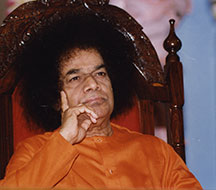
Scientists are not creators; With analogies
00:04:15Scientists can only study and describe the qualities of existing materials. They can divide them into components, reconstitute them into new compounds, and reshape them according to processes which they can explain. No scientist can create things which do not exist. Is man able to produce all the water he needs by mixing elemental substances like hydrogen and oxygen? Is he able to produce natural rain where it does not exist? Is he able to produce oxygen when he finds the need to carry it all the way with him to keep his life process going? Are the scientists able to create the sun and the stars which are the sources that give the necessary light and energy for the existence of man? Occasionally, the scientists may put together a few elemental substances and create artificially small quantities of new materials, but are they able to create the life-giving substances like oxygen, air and water for sustaining the created life on earth? It is not possible for anyone to do so. They can be created only at God’s will and pleasure. The person who realises this truth that all creation is at God’s will and pleasure can be said to be one who is not a Mudamathi. In some cities, there is a shortage of drinking water and scientists are trying to convert the saltish ocean water into drinking water. In this attempt, they may be partially successful; but where from will they get the drinking water if ocean water itself, which is the source, is not available. Thus in all cases, the original substance or the source, if we make a careful analysis and enquiry, is God given and no scientist can create it.
Topics
- Atma
- Attachment
- Balvikas
- Bhaja Govindam
- Bhajans
- Body
- Character
- Company
- Compassion
- Culture
- Day to day
- Desire
- Devotees
- Devotion
- Dharma
- Discipline
- Discrimination
- Doctors
- Education
- Faith
- Festivals
- Forbearance
- Gayathri
- God
- Gratitude
- Guru
- Health and healthcare
- HIS Life
- Human values
- India
- Karma
- Love
- Mahabharata
- Man
- Meditation
- Mind
- Music
- Musicians
- Namasmarana
- Nature
- Parents
- Philosophical concepts
- Pleasure and Pain
- Practice
- Ramayana
- Religion
- Sacrifice
- Sadhana
- Sai Organization
- Saints
- Sathya
- Science
- Senses
- Service
- Sevadal
- Shanthi
- Shirdi Baba
- Society
- Spirituality
- Students
- Thoughts
- Time
- Unity
- Upanishad
- Vedas
- Vices
- Yoga
- Youth
